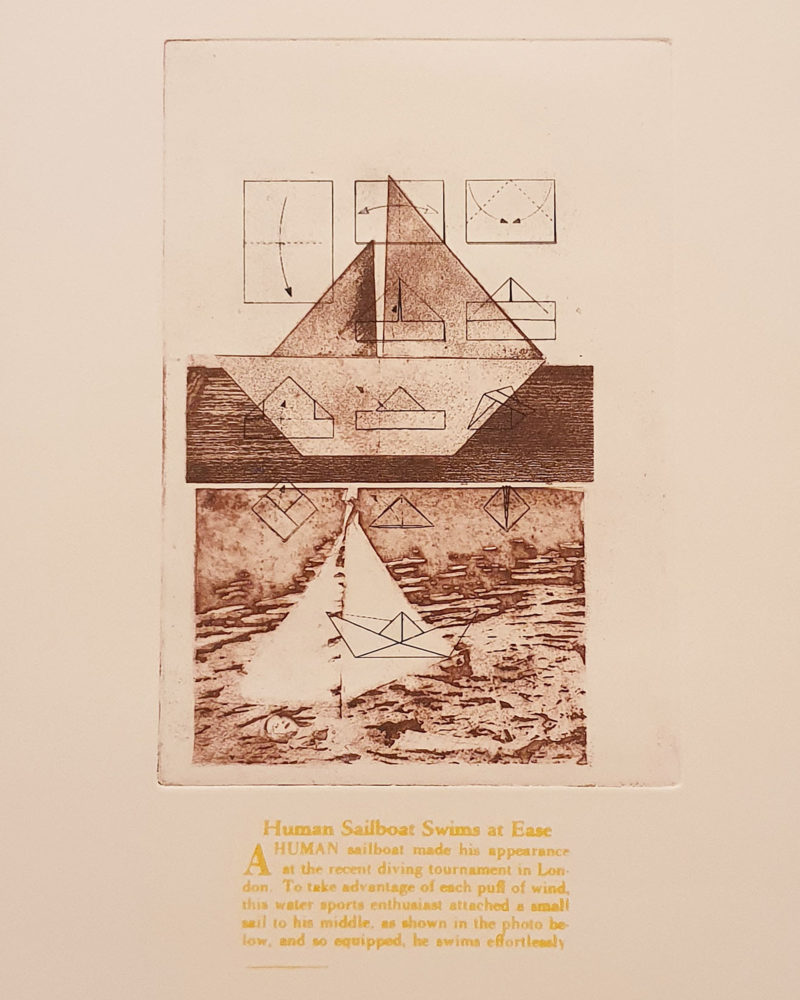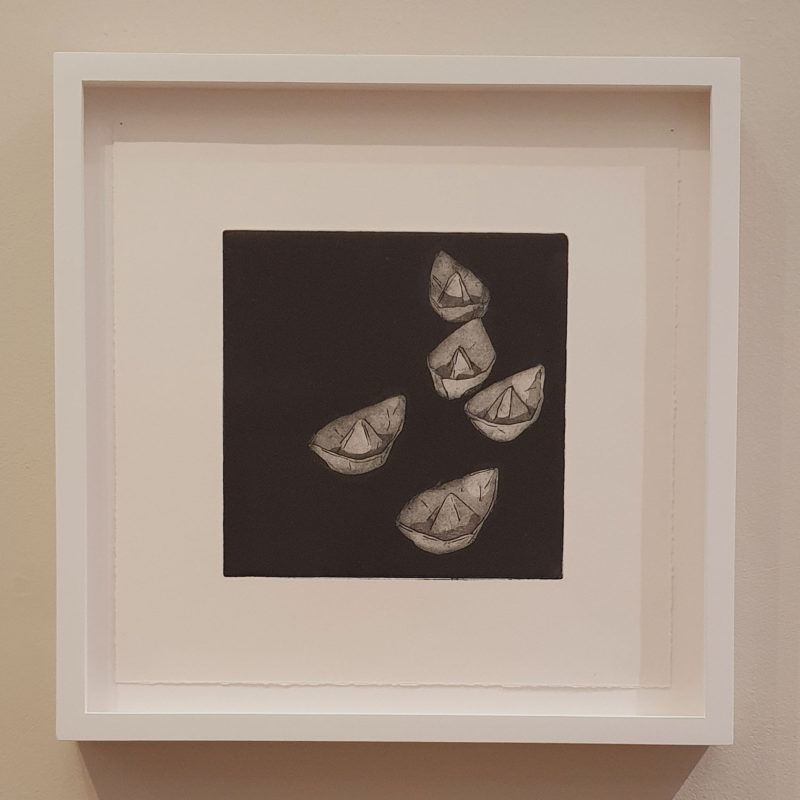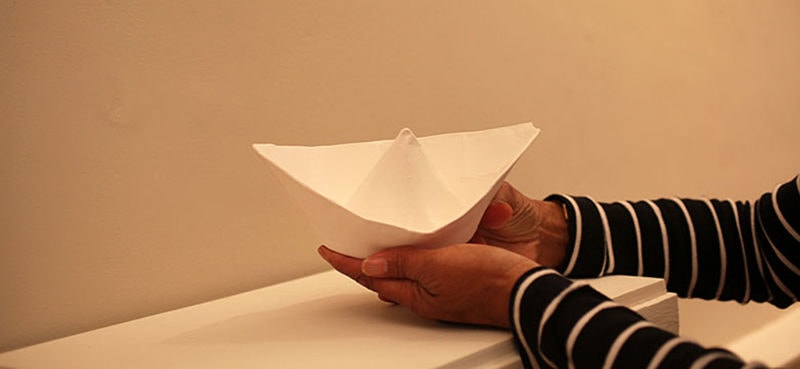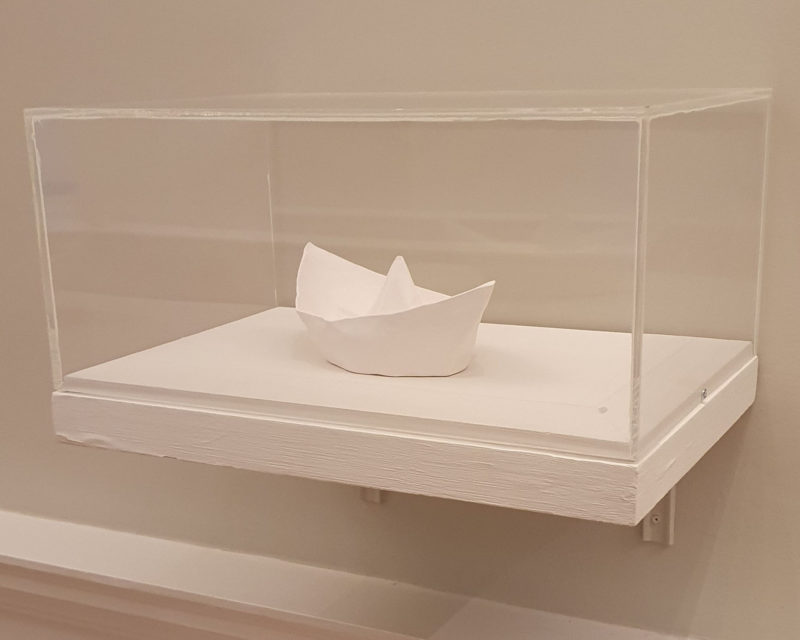We invited Pollard, an award-winning artist, photographer and researcher, to respond to George’s story and the Foundling Hospital’s connections with empire, trade and the Navy. Born in Guyana before moving to the UK as a child, Pollard is known for her photographic series exploring landscape, geography, history, and the complexities of race, identity, belonging and beauty. Her work often engages with the history of photography and its physical materials and processes.
Pollard has long been interested in Britain’s coastal landscape and global maritime history. The paper boat sculptures were originally created as part of Trade Winds/Landfall, a body of work investigating the importance of winds and sea currents in the historic commerce that crossed the Atlantic. The association with both childhood and seafaring links the boats to George, and his world at the dawn of the nineteenth century.
The pages of George’s memoir, chosen by Pollard and printed onto translucent cotton voile, mentioned the names of friends, ships and places which form anchor points in his life. These names have a sense of familiarity and recognition, which in some way enabled us to meet George across time. The choice of cotton also made a connection with a pivotal moment in George’s life, and the wider forces of trade and empire which drove his journey.
Ingrid also created a music playlist to accompany her work, which you can listen to on Spotify here.
I was delighted to be invited by the Foundling Museum to create a contemporary response to the real-life story of eighteen-century foundling and sailor George King. His life was so closely connected to the history of empire, trade and The Navy. I have reflected on the dialogues between past and present, and realised through the range of print and ceramic forms.




